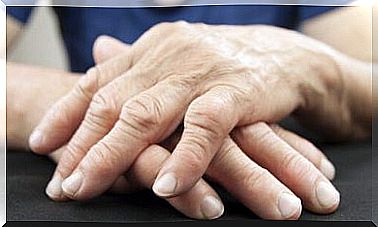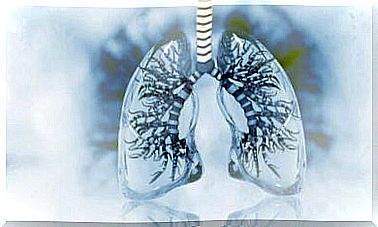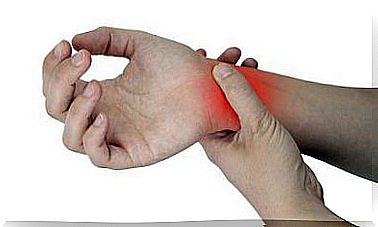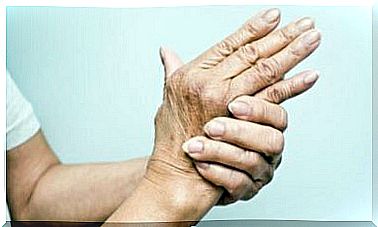How To Distinguish A Heart Attack From An Anxiety Attack
Confusing an anxiety attack with a heart attack is common in many people for a striking but obvious fact: the symptoms are similar.
For those of you unfamiliar with anxiety disorders, and panic attacks in particular, the title of this article may be somewhat puzzling to you.
However, we must be sensitive to these types of psychological conditions where physiological events are not only distressing, but also generate pain, a sense of alarm and the clear feeling that the person is on the verge of death.
Somatic activation, tachycardias, shortness of breath, and dizziness are common elements between both conditions. Understanding the difference between a heart attack and an anxiety attack can be helpful to a good portion of the population.
Heart attack: causes and symptoms
A heart attack or stroke occurs when a clot in the coronary artery blocks the supply of blood and oxygen to the heart, according to this report from the Spanish Heart Association.
This causes irregular heartbeats, known as arrhythmias, which in turn cause a significant decrease in the pumping function of the heart.
If the obstruction is not treated in a short period of time it will end up causing the death of the affected heart muscle.
Symptoms of a heart attack

- If you are having a heart attack, you will have oppressive pain, usually in the central area of the chest, in the middle, and it can be felt in the left arm and in the back.
- Likewise, the pain can also radiate to the neck, teeth and jaw.
- The intensity can vary, but lasts more than five minutes and does not affect breathing.
- On the other hand, an itching sensation appears that, in many cases, is only present in the left arm.
- It’s also common to have cold, clammy sweats, nausea, and even vomiting.
People who suffer a heart attack do not have heavy breathing, so there are hardly any cases in which this also causes an anxiety attack.
If you see that you have had some of these symptoms for five minutes, you will have to call the ambulance or go to the emergency room immediately.
Anxiety attack: origin and symptoms
An anxiety attack is also known as a panic attack and consists of a very intense reaction, accompanied by the feeling of lack of ability to control your state of nerves.
The clues must be sought in the type of thoughts that provoke them and which are usually catastrophic in nature, as well as in hyperventilation, which causes a very rapid increase in generalized physiological activation.
An anxiety attack, on a physical level, is caused by hyperactivation of the amygdala, which becomes alert when it perceives that there is a dangerous situation.
To try to solve the problem, it will be necessary to discover the reasons or why the alarm signal or threat is triggered in us before stimuli that, objectively, are not dangerous.
In any case, faced with such a picture , it is best to go to a specialist to receive a proper diagnosis. In fact, as a study carried out at the University of California reveals, these states are increasingly common, where several factors interact in turn: biology, stress and also genetics.
Symptoms of an anxiety attack
In the case of anxiety attacks, it must be remembered that it is an episode of nerves that can appear in the most common and apparently calm situations of our daily life. This is suggested in this study by Dr. J. Américo Reyes-Ticas.
- The symptoms of an anxiety attack usually occur in a maximum period, generally, of 10 minutes and it is a pain that occurs in the chest area and is intermittent: as it comes, it goes away and vice versa.
- In these episodes you will also notice numbness and a stinging sensation but it will not be limited to the left arm, as it can also be felt in the right arm, legs and fingers.
- When people are having an anxiety attack, they have irrational fears, such as going crazy.
On the other hand, if you have an anxiety attack and do not treat yourself, the intensity of the attacks may increase, something that, in any case, can improve if you go to a specialist.
4. key differences between an anxiety attack and a heart attack
We already know the symptoms of each condition. However, it is important to collect five dimensions as an illustrative summary that will help us at any given time to accurately differentiate a heart attack from an anxiety attack.
- Type and location of pain:
- In heart attack it is oppressive and is located in the chest, neck and left arm
- In the anxiety attack the pain is stabbing and appears in any part of the body (it is not localized)
- Duration of symptoms:
- In heart attack the symptoms are sudden, intense and long lasting.
- In the anxiety attack it lasts between 5 and 10 minutes.
- The breathing
- In a heart attack, breathing is either normal or the person feels unable to do so.
- In the anxiety attack the person hyperventilates. Breathing is very fast.
- Lost of control
- In a heart attack, the person does not have the psychological feeling that they have lost control of their behavior.
- In the anxiety attack the patient feels that everything is beyond his control.
To conclude, point out once again the need to consult with our doctors about these doubts. In case we have already suffered an anxiety attack, it is convenient to seek professional help to control this state. For its part, periodic check-ups and attending to indicators such as blood pressure or cholesterol will help us take care of cardiovascular health.









